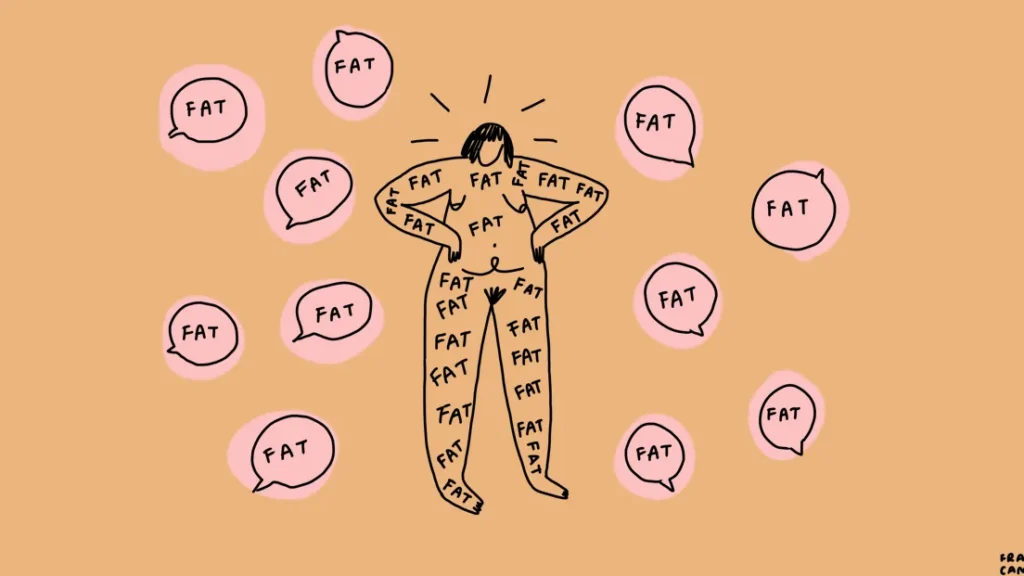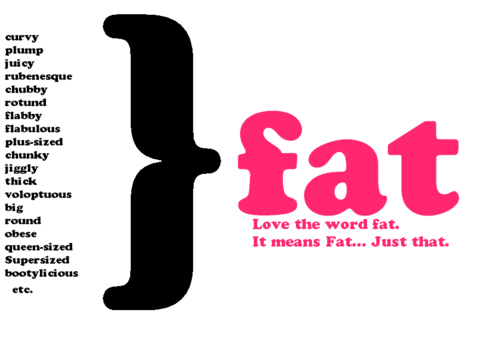Fat Is Not a Bad Word: Reclaiming It and Ditching the Shame
Let’s talk about a word that makes people uncomfortable—fat. For years, it’s been thrown around like an insult, something to fear, something to avoid at all costs. But here’s the truth: fat is not a bad word. It’s just a descriptor, like tall or short, blonde or brunette. And yet, society has weaponized it, loaded it with shame, and made people believe that being called “fat” is the worst thing in the world. But why? And, more importantly, how do we take that power back? This post will dive into the importance of reclaiming the word fat.

The Double Standard: Fat vs. Skinny
Think about the words “fat” and “skinny.” When someone calls a person “skinny,” it’s usually meant as a compliment—even if it’s said with a bit of concern. But call someone “fat,” and suddenly, it’s an insult. Why? Because we’ve been conditioned to believe that fat equals bad. But that’s a lie.
We see this double standard everywhere. Magazines scream about “fat-burning” workouts and “flattering” clothes that hide “problem areas.” Meanwhile, someone who is naturally thin is rarely scrutinized in the same way. The irony? Thin doesn’t automatically mean healthy, just like fat doesn’t automatically mean unhealthy. Health is complex, and weight is just one tiny piece of the puzzle.
Media and Society: Who Taught Us to Hate “Fat”?
From childhood, we’ve been fed the message that being fat is something to be ashamed of. Look at cartoons—how often is the villain or the goofy sidekick portrayed as fat? Ursula from The Little Mermaid. The Queen of Hearts from Alice in Wonderland. Fatness is equated with evil, laziness, or the butt of the joke.
Meanwhile, pop culture glorifies thinness. Rom-coms tell us the “glow-up” means losing weight, makeover shows act like the biggest accomplishment is dropping pant sizes, and social media influencers push diet teas that are just glorified laxatives. The message is loud and clear: thin is good, fat is bad. And that’s absolute garbage.
Reclaiming “Fat” and Taking Away the Sting

So, how do we change the narrative? We start by reclaiming the word fat. Say it out loud. Use it without shame. When we stop treating it as an insult, it loses its power to hurt.
Teri Hofford, an incredible body image educator, shares a personal experience in her blog post, “What Really Happens When they Call Me ‘Fatty'”. She discusses how being called “fatty” didn’t hurt her because she knows her body is fat and that it doesn’t make her less valuable. Instead, she realized the hurt came from the fear of disappointing others, not from the word itself.
Another way to push back? Call out fatphobia when you see it. Whether it’s a friend making a self-deprecating comment about their body, a clothing store that refuses to carry inclusive sizes, or a fitness ad pushing weight loss as the ultimate goal—speak up.
Final Thoughts: You Deserve to Take Up Space
Being fat isn’t bad. Being thin isn’t good. Your worth has nothing to do with your size. It’s time to unlearn the toxic messaging, challenge our biases, and start embracing the fact that bodies are just bodies—no moral value attached.
This is why I feel so passionately about having representation of all bodies in my work. EVERY body deserves to be seen. Are you ready to be seen? Reach out here.